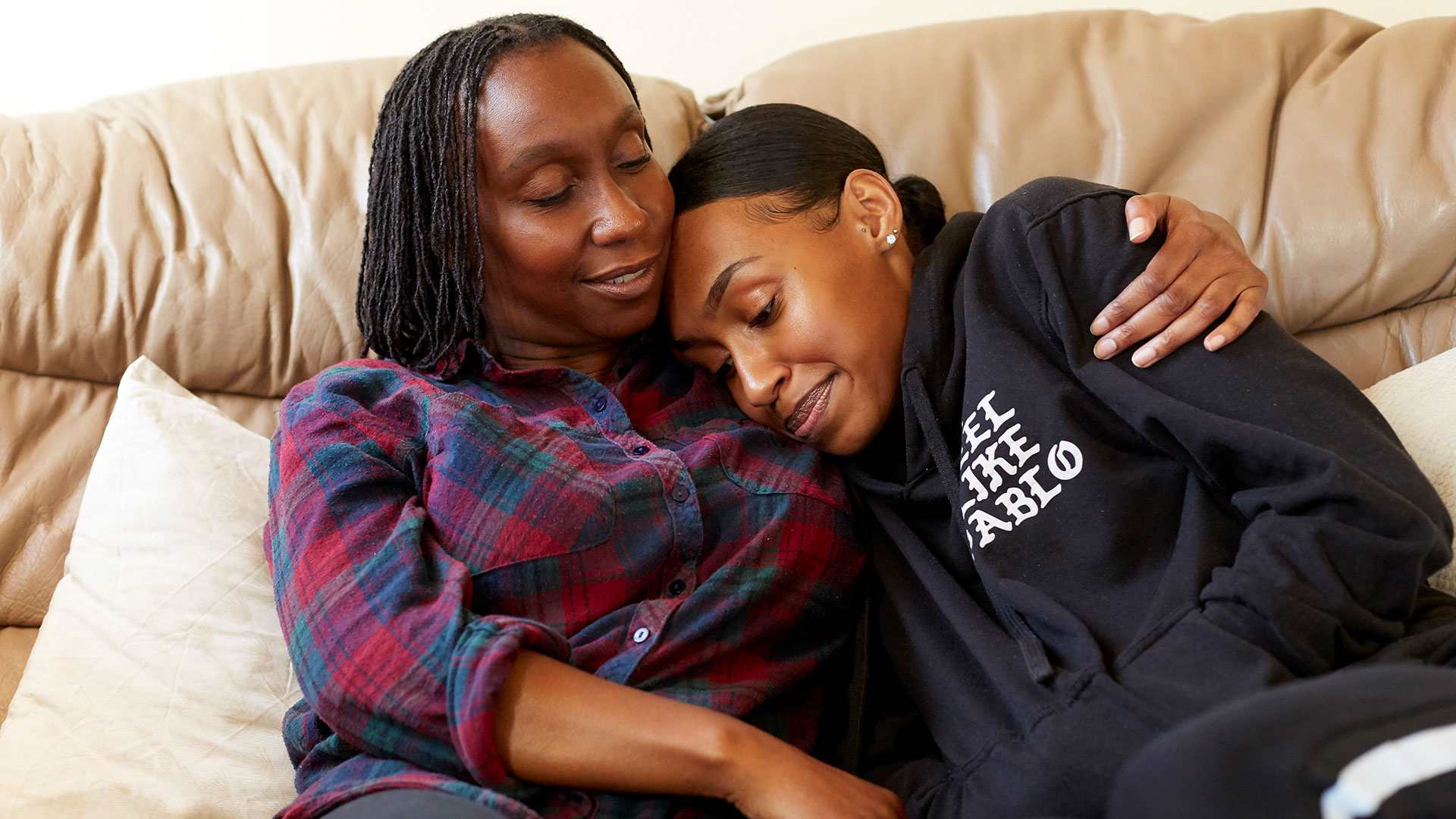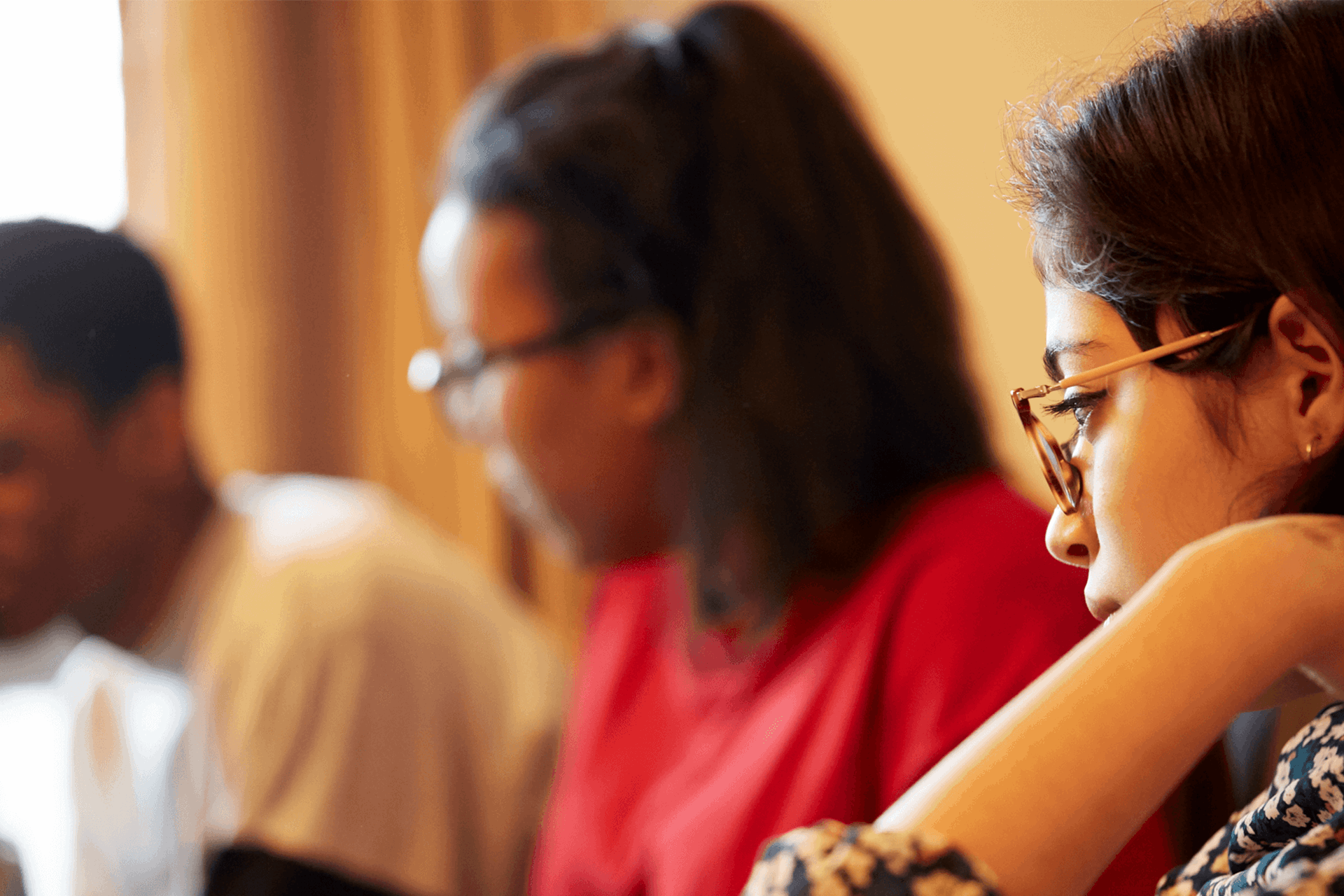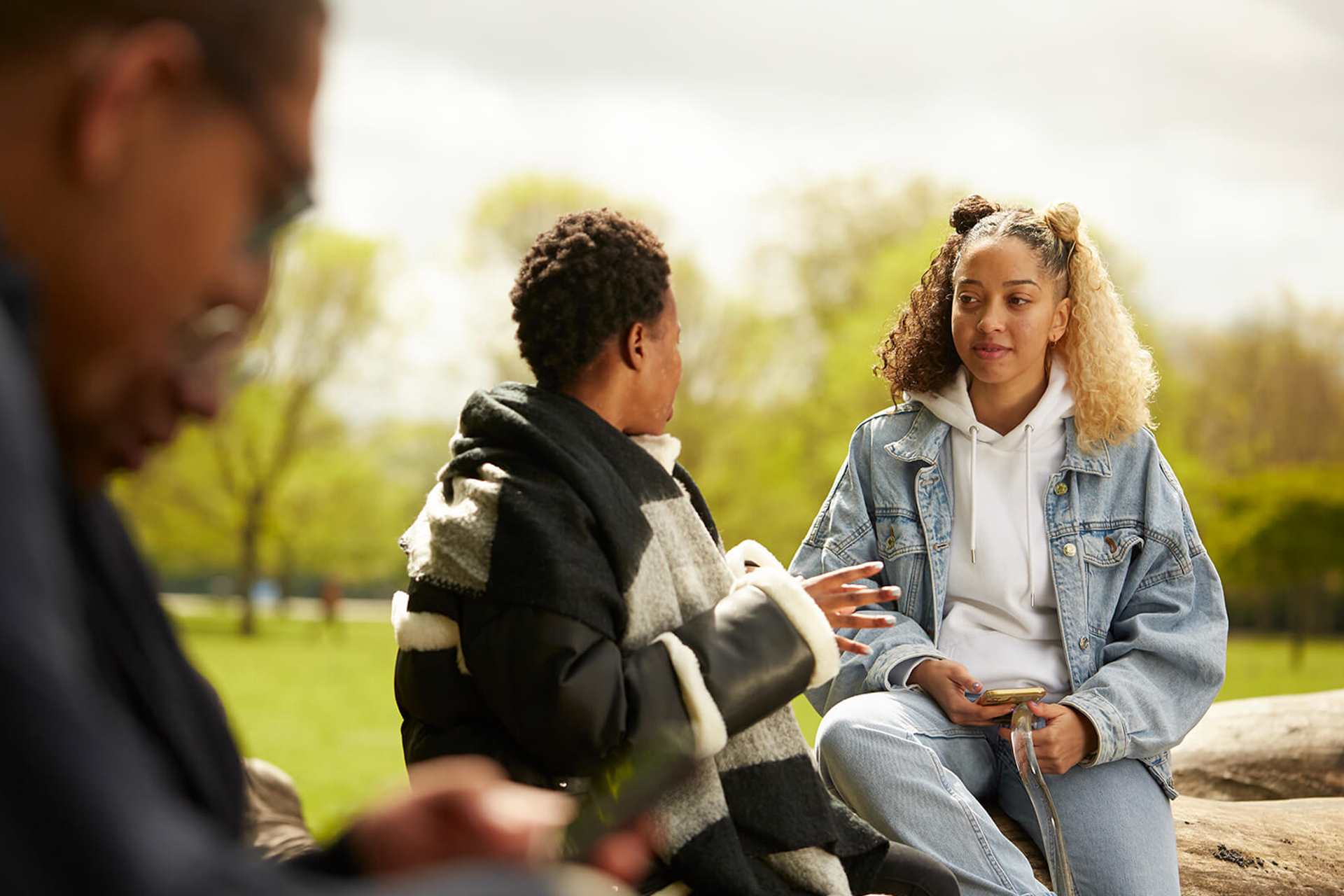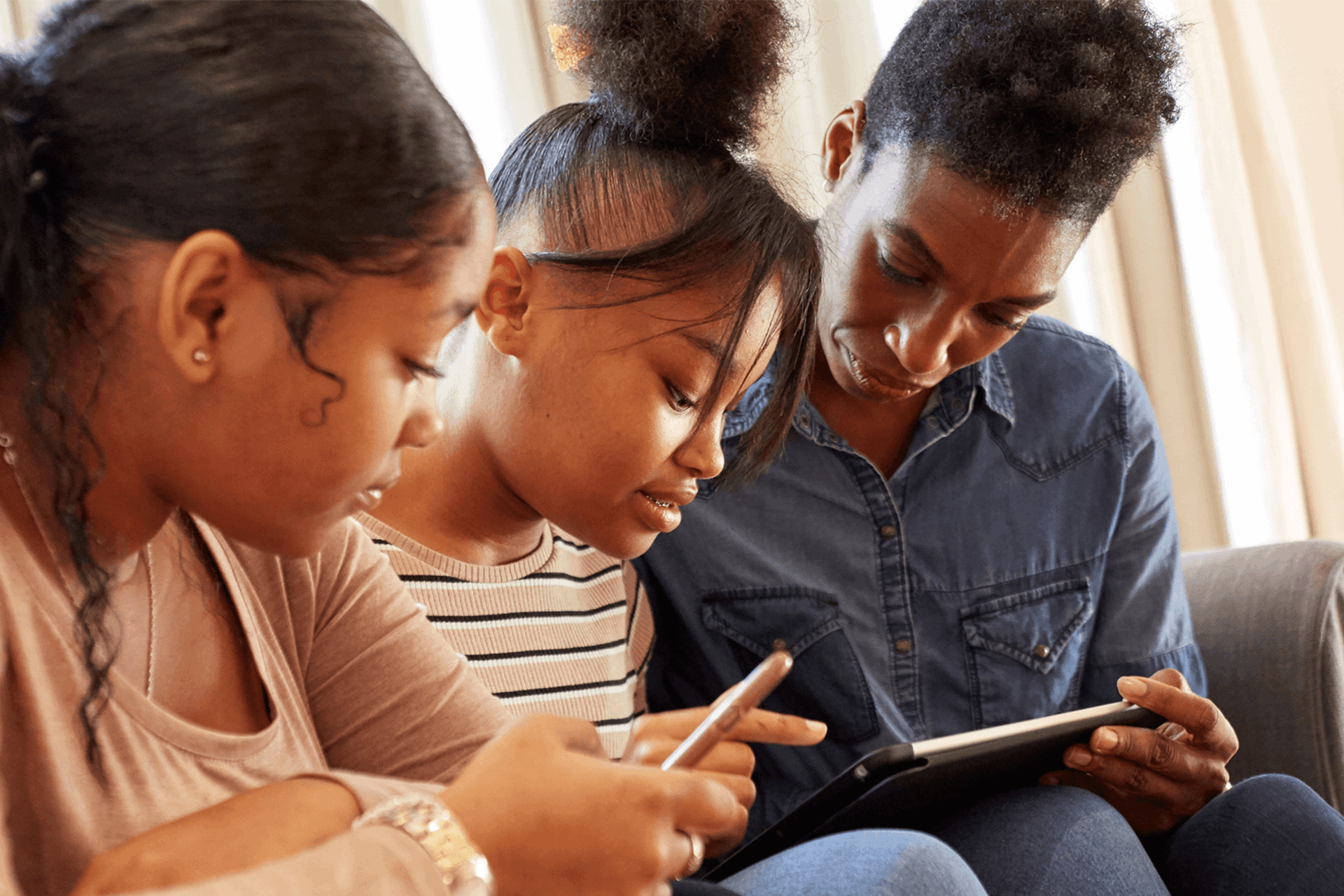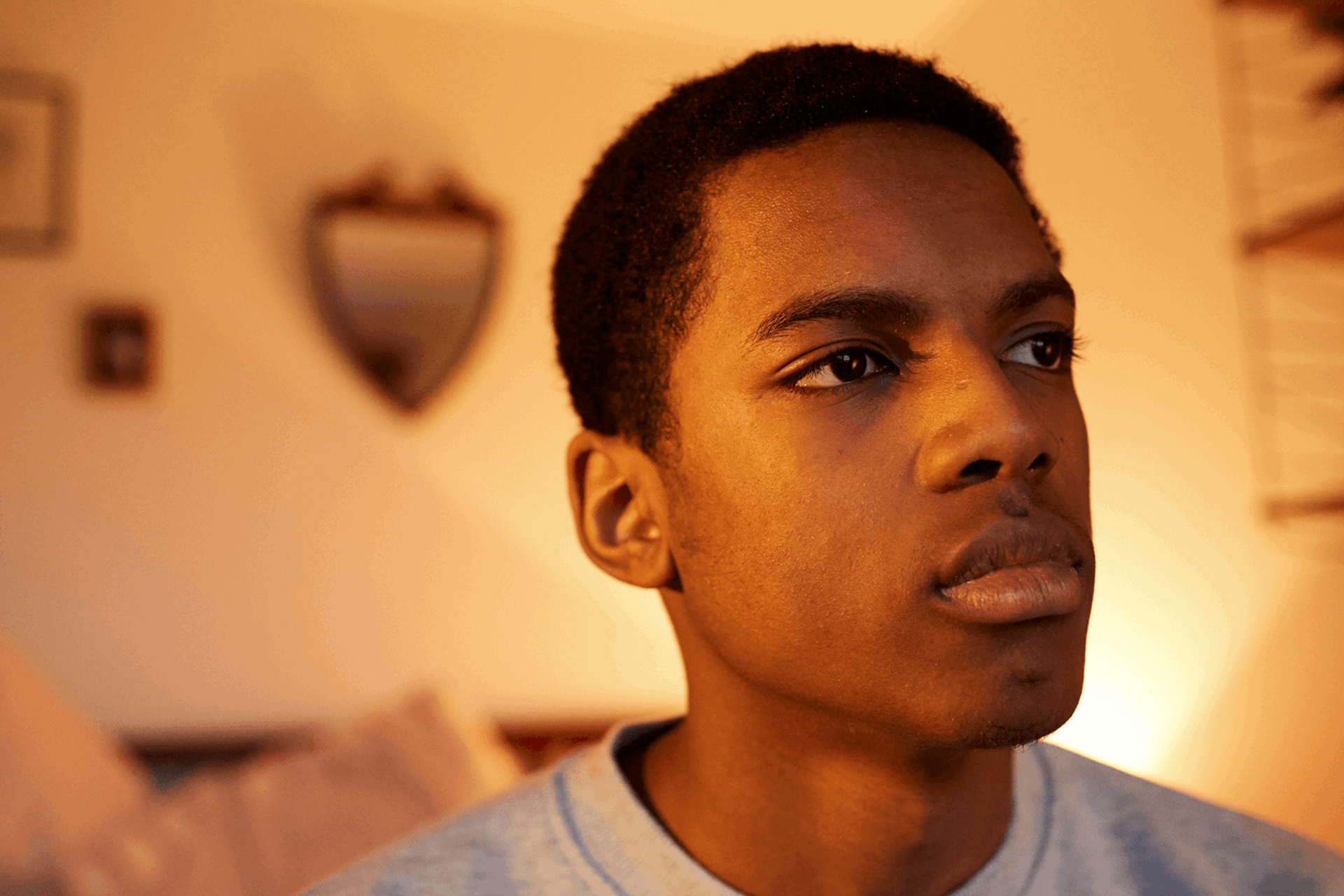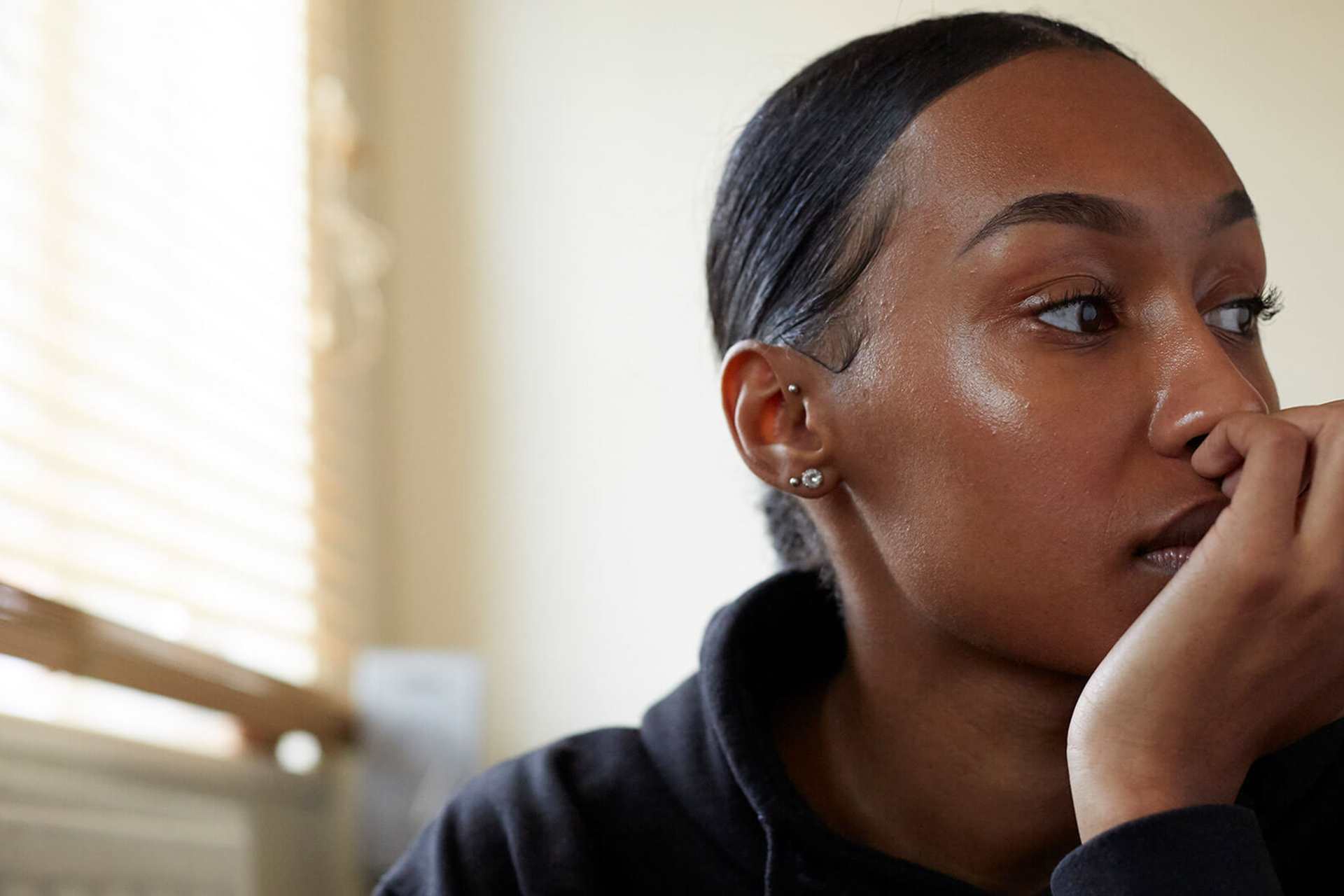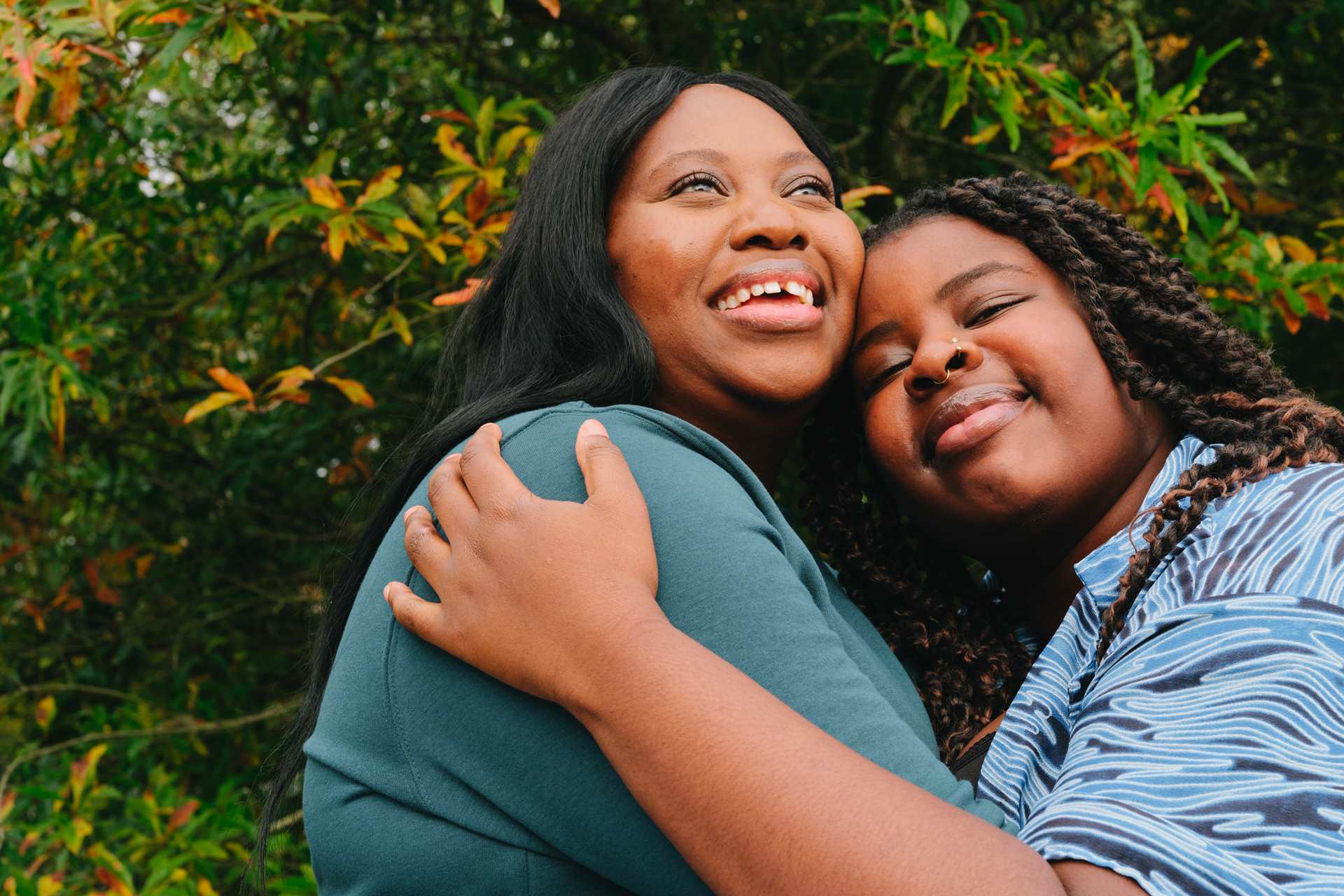Topics mentioned: racism and mental health, cultural identity and mental health
About: Jade, 23, asked other young Black people about their experiences of mental health, asking for help, and growing up Black in Britain. Here's what she found.
Over the years I have wondered, would it be easier if talking about mental health was part of my Caribbean culture?
Whenever I feel lost in life, I always connect back to my culture to feel a sense of hope again. While struggling with my mental health it’s hard for me to see the positive side to life, but somehow listening to my favourite reggae song - One Love by Bob Marley - reminds me that when I am with the people I love, everything’s going to “feel all right” in the end.
However, within the Black community, I’ve noticed that struggling with your mental health can be seen as a “weakness” or that “people with mental health issues aren’t actually ill like physically ill people." Over the years I have wondered, would it be easier if talking about mental health was part of my Caribbean culture? This view is not just my own, but the experience of other young Black individuals in Britain today.
Young Black people are also at risk of being treated as an adult when they are not.
Growing up Black in Britain
Growing up Black in Britain will be different for every Black person, but we all share some similarities, such as facing discrimination, microaggressions, racism and trying to fit into a white society.
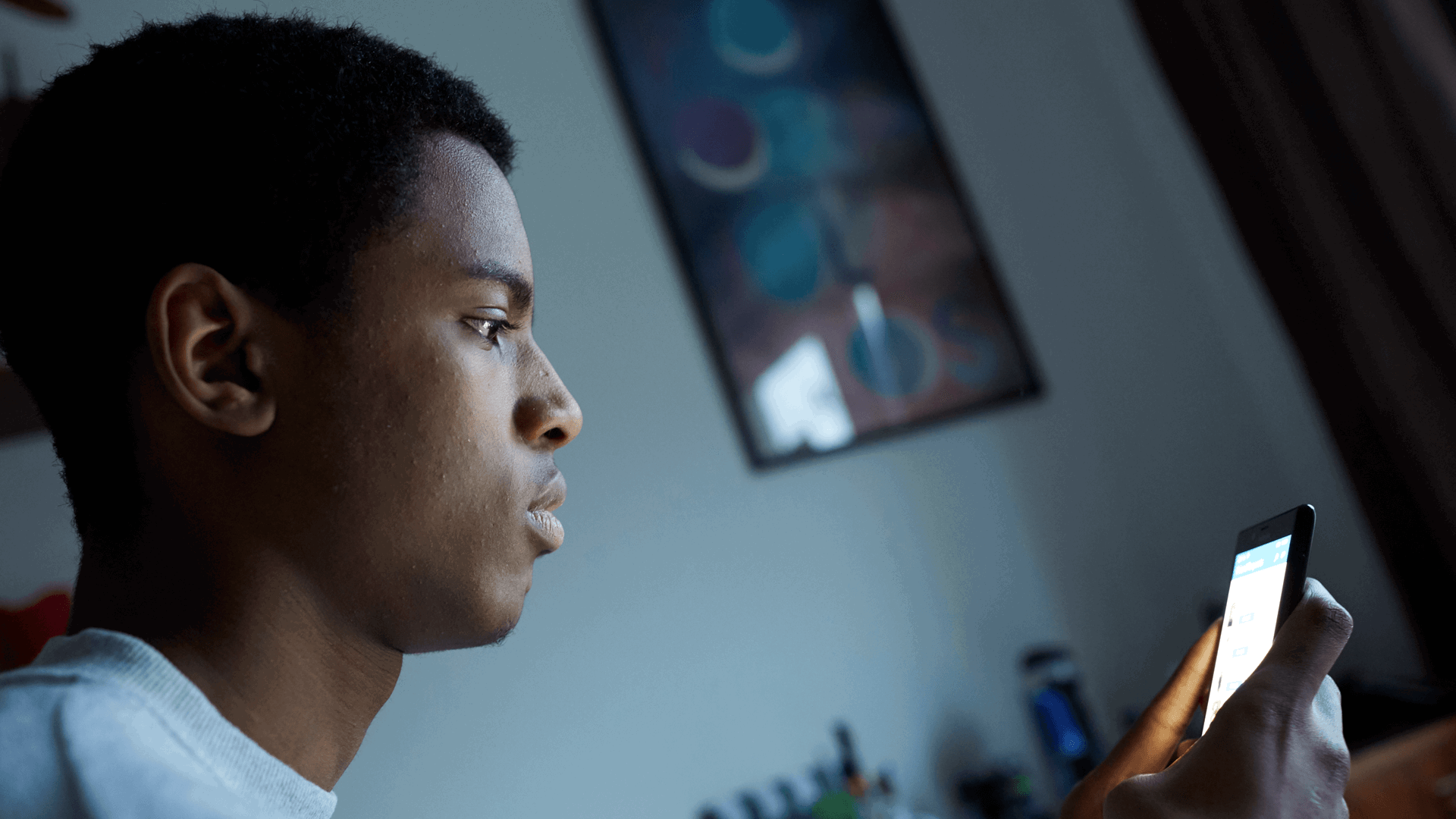
The BBC partnered up with The Open University displaying artwork showcasing “raw and honest accounts” of Black people coping with their mental health during uncertain times of the Black Lives Matter (BLM) movement and the Coronavirus lockdown.
Following the death of George Floyd in America, it created a domino effect across the world, especially in the UK, to start protesting for the BLM movement. This was a traumatic time for the Black community seeing a Black father being a victim of police brutality.
Racism and discrimination are two factors that may impact someone's mental health. Young Black people are also at risk of being treated as an adult when they are not. Adultification is when children of minority groups are treated by adults as being “more mature than they actually are." This can cause a lot of problems for boys and girls within the Black community. Young kids are being stripped and searched like Child Q, who was searched by police in her school while on her period.
We are told to be "a strong Black woman" but sometimes we want to be vulnerable and not always be strong but be open about how we are truly feeling.
Knife crime is also a growing crisis in the UK. Young boys’ lives are being lost too soon to knife crime. This is having a huge impact on the Black community. There are a lot of pressures being a young Black woman or girl in the UK. We are told to be "a strong Black woman" but sometimes we want to be vulnerable and not always be strong but be open about how we are truly feeling.
Despite all that we may face on a day-to-day basis, I want to shed light on what it’s like to have a mental health condition in the Black community in Britain. I believe mental health isn’t talked about as much in the Black British community compared with the white British community. I also want to highlight how Black British people are treated within the mental health system and how we can better support each other.
To find out more about the experiences of young Black people, I created an anonymous online questionnaire. Here is a summary of the responses I received.
Black people, especially young Black men, are four times more likely to be detained under the Mental Health Act. Why is this the case?
How is mental health perceived and understood within the Black community?
There is a lot of stigma around mental health in today's society. The factors that may affect someone's views about mental health can include:
Thinking "holy water" will make everything alright and believing someone is being possessed by an evil spirit when someone is struggling with their mental health.
Mental health is seen as a weakness. If it's talked about, especially around the older generation, someone would be called "crazy" or "mad.”
A negative experience of someone with a mental health disorder can make people avoid conversation around mental health.
Black people, especially young Black men, are four times more likely to be detained under the Mental Health Act. Why is this the case? Black boys and young men are seen as "aggressive". People avoid sitting next to them on the train and bus. Other people start walking faster and start looking over their shoulder when there is a Black boy walking behind them.
Black boys and young men are told to “be a man”. This usually means that boys and young men cannot show any signs of weakness. Why can’t boys and young men show their emotions? Why do they need to be strong? It shows a lot of strength to open up about how you are feeling.
Growing up as a young Black woman, people always commented that I looked intimidating, which was often followed by “give us a smile." Am I supposed to walk around every minute with a smile on my face? That would be a workout for the 26 muscles it takes to create the smile. Sometimes that term “give us a smile” or simply just “smile” can be annoying. You don’t know what someone is going through when you see them.
They wouldn’t discuss their mental health with parents because they were from an "older generation" and had "an old-fashioned mindset."
Would you feel comfortable talking about mental health issues with family or friends?
Some young Black people find it difficult to open up about their mental health to family members. However, there are more conversations around mental health between friendship groups and peers of similar age. From my experience alone, talking about my mental health with a family member is like talking to a brick wall. You don’t really get a response back and they weren’t really listening in the first place.
Many young people in the Black community stated they wouldn’t discuss their mental health with parents because they were from an "older generation" and had "an old-fashioned mindset." Sometimes it's important to know who the right people are when talking about our mental health as we could "end up feeling worse off talking to them" if they don’t understand.
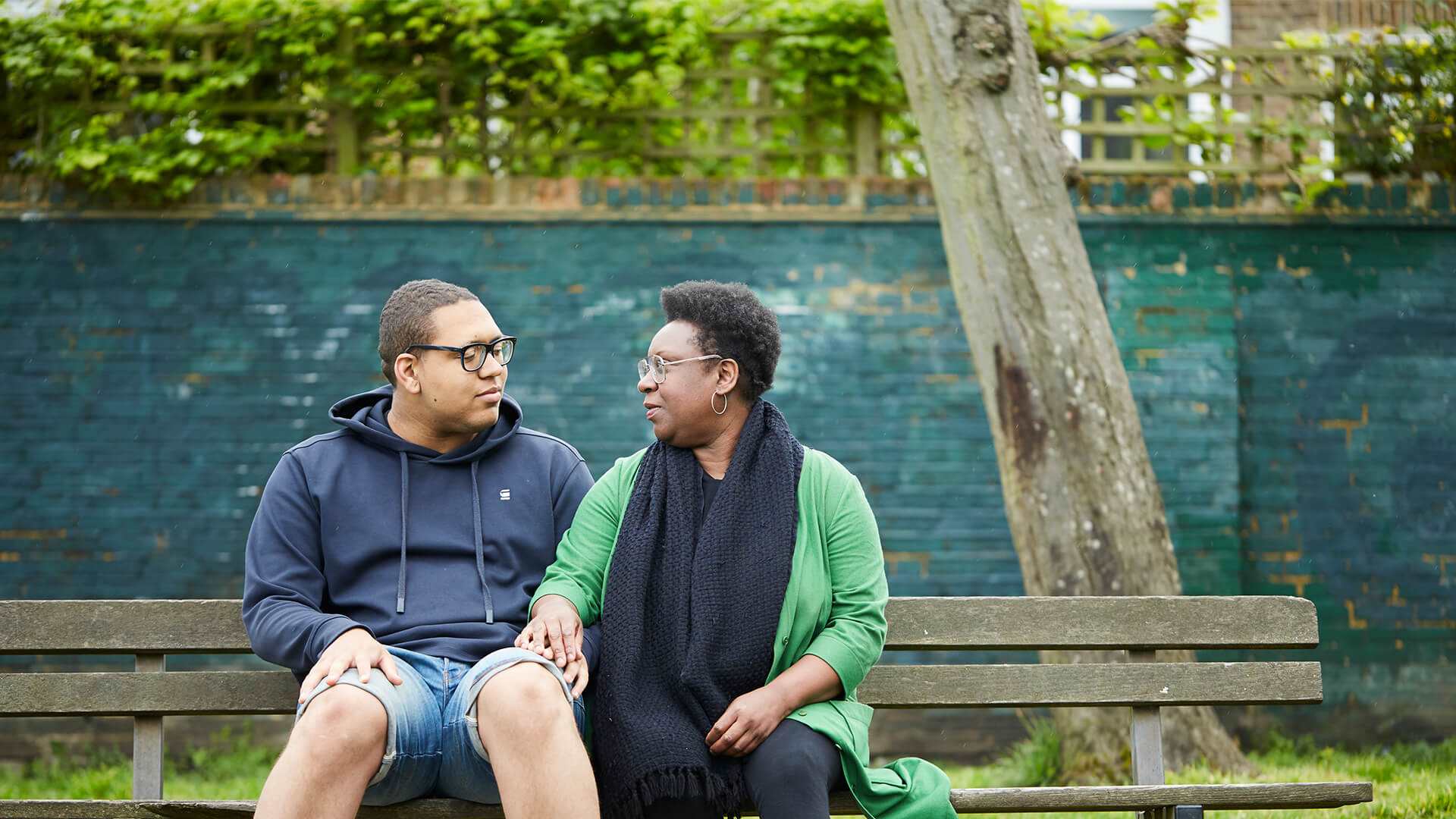
Following certain discussions with young people from my community they stated they “wouldn’t know how to initiate a discussion” about mental health with a family member, so topics around mental health are usually avoided.
But some young people within the Black community do "feel comfortable talking to most people” within their family and friendship circles.
Some people mentioned: "We have discussions about how important it is to look after your mental health." I think it's important that mental health is being discussed more within the Black community, especially within friendship groups.
I felt that shame of having to open up about my mental health to a doctor in front of my Mum, when she was oblivious to my mental health decline.
Do you feel there is enough support for young Black people in the UK?
What support would you like there to be?
Overall, there isn’t enough support for young people dealing with mental health problems. Sometimes I wonder whether the support available for young people is too formal and doesn’t suit their needs. Maybe that’s why young people are less likely to reach out for help or too anxious to turn up to their first counselling appointment.
Young people are often “unheard or silenced” by older people as we are seen as amateurs to life who have no right to complain, especially about our mental health.
Following the discussions I have had with fellow young Black people in my community, a lot of people don’t know where to turn for support. In my experience I only sought support for my mental health when I was old enough to see a GP by myself. I felt that shame of having to open up about my mental health to a doctor in front of my Mum, when she was oblivious to my mental health decline.
I say this because, it was believed that I only suffered with my mental health while at university, but this was far from the truth. Probably around the age of eight I noticed that my mental health was declining. I had become sensitive to my surroundings and found it hard to process my emotions. I just didn’t feel as though I had anywhere to express that.
The mental health crisis is growing in the UK for young people. As we can see from the examples of organisations, there is a growing list of places that support young Black people struggling with their mental health, but it's not always visible to the people who may need it most.
It's important that discussions grow around mental health within the Black community so we can better support each other as a community. We shouldn't have go through the battles in our mind alone.
Music, literature and media about the Black community
Below are some of my recommendations for further reading and listening.
- Black Joy - a collection of stories edited by Charlie Brinkhurst-Cuff and Timi Sotire
- Slay in Your Lane: The Black Girl Bible by Elizabeth Uviebinené and Yomi Adegoke
- Bless the Daughter Raised by a Voice in Her Head - poetry by Warsan Shire
- Queenie by Candice Carty-Williams
- Black men’s mental health is the next pandemic
- A looming crisis: Why Black men are most at risk of suicide
- ‘The lowest of the stack’: why black women are struggling with mental health
- ‘Black Men on the Couch’ - Celebrity mental health event for black men comes to Reading for the first time
- You're Not the Cause of Your Mental Health Struggles
More information and advice
We have tips and advice to help you find the support you need. Take a look at our guides.
Where to get help
However you're feeling, there are people who can help you if you are struggling. Here are some services that can support you.
-
Black Minds Matter
Connects Black individuals and families with free professional mental health services across the UK.
-
Childline
If you’re under 19 you can confidentially call, chat online or email about any problem big or small.
Sign up for a free Childline locker (real name or email address not needed) to use their free 1-2-1 counsellor chat and email support service.
Can provide a BSL interpreter if you are deaf or hearing-impaired.
Hosts online message boards where you can share your experiences, have fun and get support from other young people in similar situations.
- Opening times:
- 24/7
